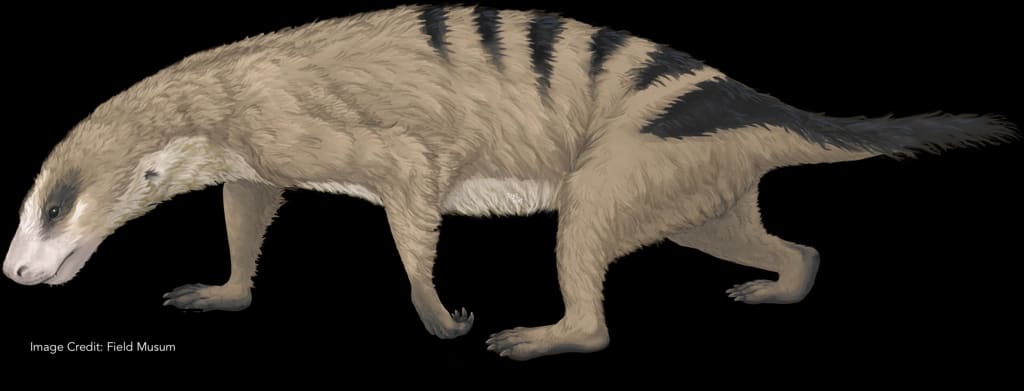SURVIVAL OF THE BORING DOESN’T DRIVE EVOLUTION
“Survival of the boring” describes a traditional view that evolution favours unremarkable, generalist species over innovation. Find out how a new study challenges that assumption by showing that diversity and innovation often drive evolutionary success.

Not everyone is a fan of raccoons, but I’ve always admired them. They can be a nuisance if I forget to latch my composting bin on garbage day, and they find their way into it.
Even so, their intelligence, ingenuity and versatility impress me. I also appreciate the way they’ve changed with the times and adapted to our ever-expanding urban environments.
Of course, that’s not always desirable from a human point of view. People who’ve had raccoons move into their attic or chimney probably don’t share my enthusiasm for these omnivorous mammals.
EVOLUTION FAVOURS GENERALISTS – SURVIVAL OF THE BORING
According to conventional science, raccoons are one of those generalist species that evolution favours through a kind of survival of the boring. Since the dawn of modern science, ecologists have thought that mammals that can eat anything in sight and adapt to a wide range of ecosystems are the ones that make it through tough times.
Dr. Ken Angielczyk is a paleobiologist. For the past two decades, he’s been studying evolution through statistical analysis, examining how ancient ecosystems interacted, and tracking how past mass extinctions have affected various mammal species.
Professor Angielczyk is currently the MacArthur Curator of Paleomammalogy and a Section Head at Chicago’s Field Museum. The museum is named after philanthropist Marshall Field and it’s been dedicated to both research and conservation efforts around the world for over a century.
MAMMAL SPECIES FAMILY TREES
This week, the journal Nature Ecology published a study of which Professor Angielczyk is the senior author. The researchers reviewed mammal species’ family trees during a series of mass extinctions.
The research led the team to a new realization. It’s not necessarily boring species that survive, sometimes it’s those with unusual, new traits that succeed in a disaster’s aftermath.
“The idea of the ‘survival of the unspecialized’ goes back to the 1800s, and the conventional wisdom is that generalized animals are the least likely to go extinct.” Professor Angielczyk explains. “But we found that the ones that survived more often only seemed generalized in hindsight, when compared with their later descendants.”
ANIMAL SPECIES THAT ENDURE ARE ACTUALLY QUITE INNOVATIVE
Reviewing the family tree, the scientists noticed that many of the animal species that endure mass extinctions are actually quite innovative as opposed to boring species. “They were actually pretty advanced animals for their time, with new traits that might have helped them survive and provided evolutionary flexibility,” Professor Angielczyk said.
The family tree came from Professor Spencer Hellert of Columbia College, who’s also a research associate at the Field Museum. He pulled together one of the largest fossil trees ever produced showing the genealogy of the synapsids, a broad group of ancient animals from which today’s mammals are the sole survivors.
“We couldn’t test this idea without a humongous family tree along with general information about the animals’ diets and body sizes.” Professor Angielczyk said. “Then we looked at what happened over time through the five major evolutionary radiations in synapsids.”
MASS EXTINCTIONS OFTEN LEAD TO EVOLUTIONARY RADIATIONS
Evolutionary radiations are historic periods when there’s a burst of diversification. Mass extinctions, like the end of the dinosaurs, often lead to evolutionary radiations, like the rise of the mammals.
The conventional wisdom has been that these evolutionary radiations led to survival of the boring. “What’s been thought previously is that every time a new group of mammals evolves, you start out with a small generalist animal,” Professor Hellert explained. “When disaster strikes, those are the guys that keep on trucking — they can hide anywhere, they can eat whatever is around.”
The data contradicted this view. Survival of the boring would have led to the survival of small, insect eating animals after mass extinctions.
SOME BORING SPECIES WERE NOVEL WHEN THEY FIRST APPEARED
Instead, larger synapsids who weren’t generalist insect-eaters were often the animals that thrived during evolutionary radiations. Also, animals that we think of as boring species today were actually quite novel when they first appeared.
For instance, mammals with teeth that were good for grinding food instead of for biting took advantage of food scarcity. Their different dental structure enabled them to adapt to eating different kinds of food.
AND ANOTHER THING…
This better understanding of how evolution works is part of gaining a grasp on the new story humanity needs to make sense of the world around us and our place within it. Realizing that diversity and novelty are essential to nature’s survival can help us to cultivate those traits in our own relationships.
I’ve always been a firm believer that “normal just means average.” I’ve also always liked the phrase, “why be boring?”
“We don’t really know if there is a consistent set of features typically possessed by the ancestors of evolutionary diversifications,” Professor Angielczyk concluded. “The fact that we see this complexity in the diversifications of mammals and their ancient relatives means we need to examine other groups to see if the situation in mammals is an exception, or business as usual.”
We always have more to learn if we dare to know.
Learn more:
Derived faunivores are the forerunners of major synapsid radiations
Beaver Fossil Sheds Light on Mammal Evolution
Animal Origins Revealed by Rethinking Fossil Record
About the Creator
David Morton Rintoul
I'm a freelance writer and commercial blogger, offering stories for those who find meaning in stories about our Universe, Nature and Humanity. We always have more to learn if we Dare to Know.






Comments
There are no comments for this story
Be the first to respond and start the conversation.